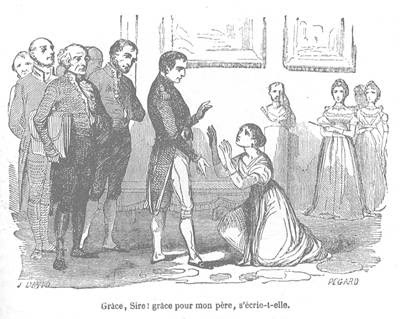B |
UT God, who is rich in mercy, for his great love wherewith he loved us, 5 Even when we were dead in sins, hath quickened us together with Christ, (by grace ye are saved;) 6 And hath raised us up together, and made us sit together in heavenly places in Christ Jesus: 7 That in the ages to come he might shew the exceeding riches of his grace in his kindness toward us through Christ Jesus. 8 For by grace are ye saved through faith; and that not of yourselves: it is the gift of God: 9 Not of works, lest any man should boast. 10 For we are his workmanship, created in Christ Jesus unto good works, which God hath before ordained that we should walk in them. (Ephesians 2:4-10)
A few years back, I had the opportunity to participate in the ordination of Rev Stephen Cooper to the Office of Priest. Rev Cooper is a retired former Federal Prosecutor of the State of Alaska. We had many in-depth discussions on biblical doctrine while I was there. I learned much from this Godly man. His knowledge is not superficial but penetrating, and his wisdom is worth sharing. He mentioned a subject that was one I had previously not considered – the contrast between mercy and pardon. He referred me to a book written from a perspective of law and justice which clearly shows that pardon is only intended to right a deficiency of justice in the provisions of the Law. It does not negate crime or sin. The book is entitled Law and the Cross (1911) by CF Creighton. Pardon implies that God’s law is not perfect in its application and therefore cannot be biblically effectual. Jesus did not die to ‘pardon’ our sins but to pay the penalty the law demands. That is justice under the Law. I highly recommend this book to all who desire to know the finer points of the grace of Christ in satisfying the terms of the Law – not negating them. The legal code of the Old Testament makes frequent mention of pardon, but the work of salvation wrought by our Lord nullifies any concept of pardon in favor of a legal justification satisfied on the cross. I will share some remarks of Rev Cooper on Facebook after this devotion is posted.
Napoleon Bonaparte is often portrayed as a violent man, a dictator alongside the likes of Hitler and Mussolini. But those who knew him, knew him to be a man of great compassion.
A certain General Lajolais of Napoleon’s army, was found guilty of conspiring against the state and sentenced to death. The General’s daughter managed to be in such a place, at such a time, that allowed her to throw herself at the feet of the Emperor and beg for mercy[1]. Annoyed, Napoleon attempted to walk around her but she held on to his knees refusing to let go. ‘Mercy! Sire! Mercy for my father!’
Finally, the Emperor asked her, ‘What is the name of your father?
‘Lajolais, she answered. ‘Yes I know him, but Mademoiselle this is the second time your father was found guilty of an attack upon the state. I cannot give him anything, he must face justice.’ ‘I know Sire,’ the young lady answered. ‘But the first time he was innocent and today, it is not justice I ask for, but mercy.’ ‘Why?’ asked Napoleon, ‘What has he done to deserve mercy?’ “If he deserved it,’ the daughter replied, ‘it would not be mercy.’
The Emperor, visibly touched, took the young girl’s hands in his own and in a broken voice said, ‘Yes, my child, I will grant mercy because of you.’
Grace is a merciful gift from heaven, we cannot earn it or deserve it, and it is through Christ that God offers it to us. (Grace, Mercy, and Napoleon By: Deacon Lawrence 22 March 2019, Homily, The Christian Artist)
The blessing of peace cannot be found in the sinful heart, but God offers peace to those who are imbued with the imputed righteousness of Jesus Christ by means of election. Mercy and truth are met together; righteousness and peace have kissed each other. (Psalm 85:10) The imputed righteousness of the saints of God brings a peace that is beyond comprehension. The conjunction of righteousness and peace is the measure of love, first imparted by God, and then returned in echo from the heart of the believer. We love him, because he first loved us. (1 John 4:19)

No comments:
Post a Comment